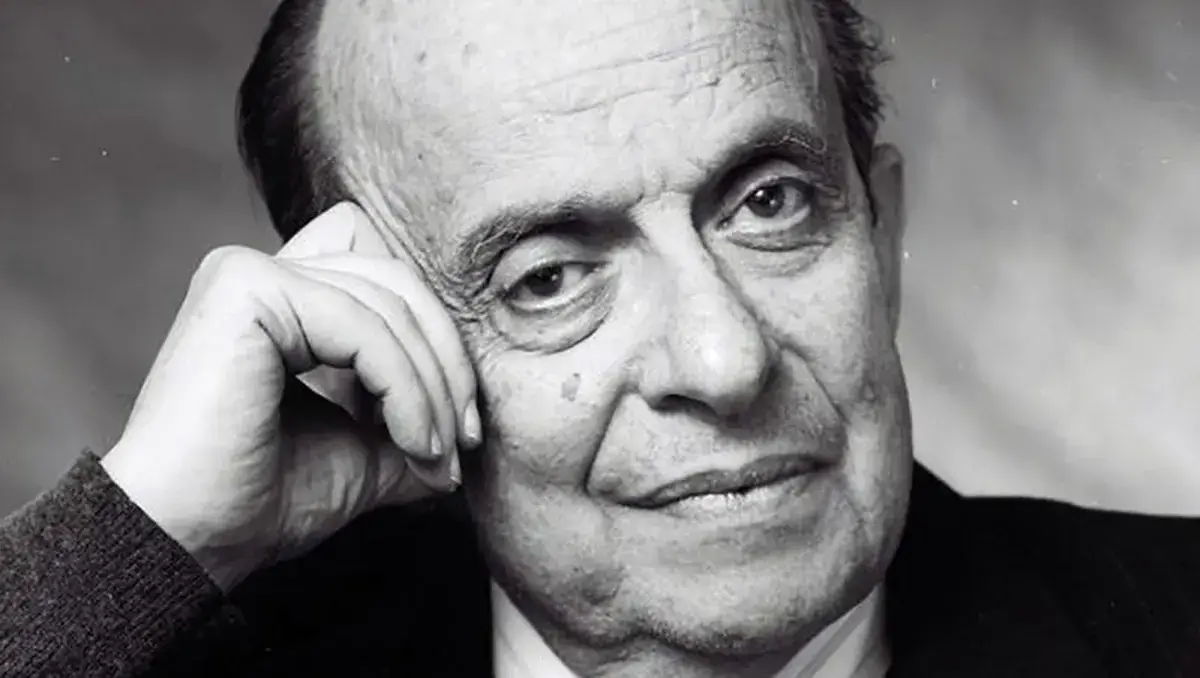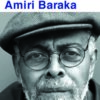By Francisco García González, English translation by Mary G. Berg
A Your Impossible Voice:
Amigos, disculpen, pero escribir es menos original que lo que uno se imagina. Solo se trata de un acto de registro que unos hacen mejores que otros. Debe ser el talento. Tarde más de treinta años para darme cuenta que todos poseemos una mente literaria y que dicha cosa no para de generar narrativa. Eso es biología. Fascinante, además.
Nunca pensé que iba a sobrevivir a la fuga del canon literario insular. Escapar hacia otra latitud cultural ha modelado mi nueva narrativa y la manera de interpretar la misma. No sé si mejor o peor. Con la distancia es suficiente. Conquistar esa coordenada ha sido una experiencia extraordinaria y natural. Ha pasado y ya.
Creo que era Kafka quien decía que la literatura era el salario del diablo. Solo que el salario mínimo. Y si tomo en cuenta mi doble condición de escritor y trabajador inmigrante de escasas habilidades, pasan de irónicas las nociones salariales del diablo y del escritor checo. En cuanto a mí lo he vivido, lo viviré.
No sé si Montreal es una ciudad letrada o no, aunque al parecer la habitan muchos escritores de habla castellana. No obstante, cuando voy en el metro trato de averiguar quiénes son los autores que lee la gente en francés o inglés. Jamás he visto el nombre de uno conocido. Solo sé que escriben extensos volúmenes que no tengo idea de que tratan. Lo mismo sucede cuando entro a las librerías. Indigo. Chapters…. ¿Qué me estaré perdiendo?
Montreal es la ciudad de mis personajes. El viejo que canta La Guantanamera en la entrada del metro. Las esposas que envían a dormir a sus mascotas enfermas. El administrador que echa del cementerio a su empleado por falta de entusiasmo. El hombre fascinado con el funcionamiento de un taladro. El asesino en serie de mascotas…. Nada más.
Y si pienso en el país, en Canadá ocurren milagros, acá se integran negros, blancos, asiáticos…y hasta vampiros. No se trata de metáforas. ¿Qué más podemos pedir? Que de constatar el pulso de la vida y sus avatares se ocupe la mente, literaria, el cuerpo va por el salario.
Muchas gracias,
Francisco García.
Montreal, February 6, 2014
To Your Impossible Voice:
Friends, forgive me, but writing is less creative than one would think. It’s just a matter of registering and some people do this better than others. That must be a matter of talent. It took me over thirty years to realize that we all possess a literary mentality and that this constantly generates narrative. That’s biology. Fascinating, too.
I never thought I was going to survive my flight from the island’s literary canon. The escape to a different cultural latitude has shaped my new narrative and the way this can be interpreted. I don’t know whether it’s better or worse. The distance is sufficient. Learning to live in this coordinate has been an extraordinary and natural experience. It happened, and I’ve done it.
I think it was Kafka who said that literature is the devil’s salary. But a minimum wage. And if I take into account my double condition as writer and immigrant worker with few resources, the devil’s—and the Czech’s—salary notions must be taken as ironic. As for me, I’ve lived it, I will live it.
I don’t know whether Montreal is a lettered city or not, although it seems that quite a number of Spanish speaking writers live here. Nevertheless, when I travel by metro I try to figure out which writers are being read by travelers in French or in English. I’ve never recognized any of the names. The same thing happens when I go into a bookstore. I browse. Indigo. Chapters.… What am I losing out on?
Montreal is the city where my characters live. The old man singing the Guantanamera at the metro entrance. The couple that put their sick pets to sleep. The administrator who evicts his employee from the cemetery for his lack of enthusiasm. The man fascinated by how an auger works. The assassin in a series of mascots…. Nothing more.
And if I think about the country, in Canada miracles occur, here blacks, whites, and Asians mix…even vampires. It’s not a matter of metaphors. What more could we ask? The literary mind is filled with taking the pulse of life and its ups and downs, while the body chases after the salary.
Many thanks,
Francisco García
Letter from Singapore
By Francisco García González, English translation by Mary G. Berg
A Your Impossible Voice:
Amigos, disculpen, pero escribir es menos original que lo que uno se imagina. Solo se trata de un acto de registro que unos hacen mejores que otros. Debe ser el talento. Tarde más de treinta años para darme cuenta que todos poseemos una mente literaria y que dicha cosa no para de generar narrativa. Eso es biología. Fascinante, además.
Nunca pensé que iba a sobrevivir a la fuga del canon literario insular. Escapar hacia otra latitud cultural ha modelado mi nueva narrativa y la manera de interpretar la misma. No sé si mejor o peor. Con la distancia es suficiente. Conquistar esa coordenada ha sido una experiencia extraordinaria y natural. Ha pasado y ya.
Creo que era Kafka quien decía que la literatura era el salario del diablo. Solo que el salario mínimo. Y si tomo en cuenta mi doble condición de escritor y trabajador inmigrante de escasas habilidades, pasan de irónicas las nociones salariales del diablo y del escritor checo. En cuanto a mí lo he vivido, lo viviré.
No sé si Montreal es una ciudad letrada o no, aunque al parecer la habitan muchos escritores de habla castellana. No obstante, cuando voy en el metro trato de averiguar quiénes son los autores que lee la gente en francés o inglés. Jamás he visto el nombre de uno conocido. Solo sé que escriben extensos volúmenes que no tengo idea de que tratan. Lo mismo sucede cuando entro a las librerías. Indigo. Chapters…. ¿Qué me estaré perdiendo?
Montreal es la ciudad de mis personajes. El viejo que canta La Guantanamera en la entrada del metro. Las esposas que envían a dormir a sus mascotas enfermas. El administrador que echa del cementerio a su empleado por falta de entusiasmo. El hombre fascinado con el funcionamiento de un taladro. El asesino en serie de mascotas…. Nada más.
Y si pienso en el país, en Canadá ocurren milagros, acá se integran negros, blancos, asiáticos…y hasta vampiros. No se trata de metáforas. ¿Qué más podemos pedir? Que de constatar el pulso de la vida y sus avatares se ocupe la mente, literaria, el cuerpo va por el salario.
Muchas gracias,
Francisco García.
Montreal, February 6, 2014
To Your Impossible Voice:
Friends, forgive me, but writing is less creative than one would think. It’s just a matter of registering and some people do this better than others. That must be a matter of talent. It took me over thirty years to realize that we all possess a literary mentality and that this constantly generates narrative. That’s biology. Fascinating, too.
I never thought I was going to survive my flight from the island’s literary canon. The escape to a different cultural latitude has shaped my new narrative and the way this can be interpreted. I don’t know whether it’s better or worse. The distance is sufficient. Learning to live in this coordinate has been an extraordinary and natural experience. It happened, and I’ve done it.
I think it was Kafka who said that literature is the devil’s salary. But a minimum wage. And if I take into account my double condition as writer and immigrant worker with few resources, the devil’s—and the Czech’s—salary notions must be taken as ironic. As for me, I’ve lived it, I will live it.
I don’t know whether Montreal is a lettered city or not, although it seems that quite a number of Spanish speaking writers live here. Nevertheless, when I travel by metro I try to figure out which writers are being read by travelers in French or in English. I’ve never recognized any of the names. The same thing happens when I go into a bookstore. I browse. Indigo. Chapters.… What am I losing out on?
Montreal is the city where my characters live. The old man singing the Guantanamera at the metro entrance. The couple that put their sick pets to sleep. The administrator who evicts his employee from the cemetery for his lack of enthusiasm. The man fascinated by how an auger works. The assassin in a series of mascots…. Nothing more.
And if I think about the country, in Canada miracles occur, here blacks, whites, and Asians mix…even vampires. It’s not a matter of metaphors. What more could we ask? The literary mind is filled with taking the pulse of life and its ups and downs, while the body chases after the salary.
Many thanks,
Francisco García
About the Author
 Ho Lin is a writer, filmmaker, and musician (in other words: jack of all trades, master of none) who lives in San Francisco. He is co-editor of the literary journal Caveat Lector, and more of his work can be found at www.holin.us and www.camera-roll.com. He can be pinned down on Facebook.
Ho Lin is a writer, filmmaker, and musician (in other words: jack of all trades, master of none) who lives in San Francisco. He is co-editor of the literary journal Caveat Lector, and more of his work can be found at www.holin.us and www.camera-roll.com. He can be pinned down on Facebook.
About the Author
 Ho Lin is a writer, filmmaker, and musician (in other words: jack of all trades, master of none) who lives in San Francisco. He is co-editor of the literary journal Caveat Lector, and more of his work can be found at www.holin.us and www.camera-roll.com. He can be pinned down on Facebook.
Ho Lin is a writer, filmmaker, and musician (in other words: jack of all trades, master of none) who lives in San Francisco. He is co-editor of the literary journal Caveat Lector, and more of his work can be found at www.holin.us and www.camera-roll.com. He can be pinned down on Facebook.



